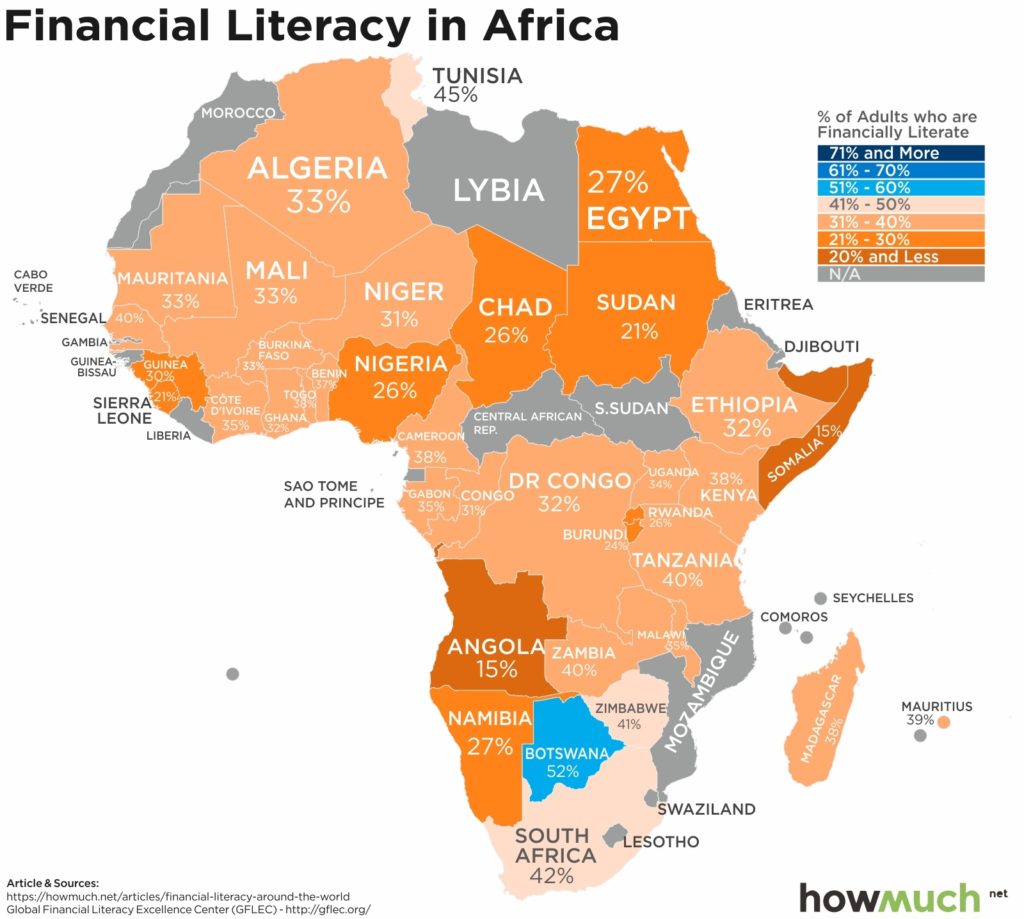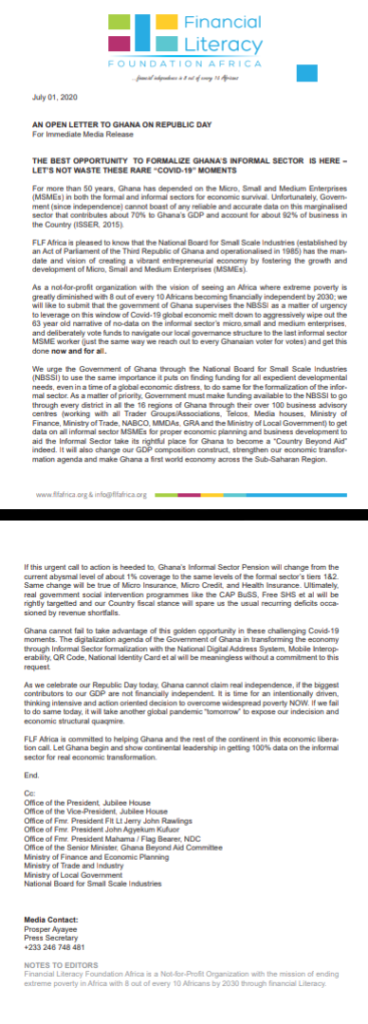The Financial Literacy Foundation (FLF) Africa has called on government to formalize the informal sector and get the necessary data to include the sector in proper economic planning to help achieve the “Ghana Beyond Aid” initiative.
The Foundation in an open letter to government on Republic Day, made the call with a sense of urgency as it referred to the pandemic as an opportunity that cannot be wasted.
According to the Foundation, for poverty to be reduced to a level where eight out of ten persons are financially independent by 2030, then it is high time government grabs these rare COVID moments to save “the 63 year old narrative of no-data on the informal sector’s micro, small and medium enterprises, and deliberately vote funds to navigate our local governance structure to the last informal sector MSME worker (just the same way we reach out to every Ghanaian voter for votes) and get this done now and for all.”
Along with the call, FLF Africa urged government to use the same sense of priority it used in addressing the pandemic to provide the National Board for Small Scale Industries (NBSSI) with funds across all 16 regions to facilitate the formalization process.
It reads, “as a matter of priority, Government must make funding available to the NBSSI to go through every district in all the 16 regions of Ghana through their over 100 business advisory centres (working with all Trader Groups/Associations, Telcos, Media houses, Ministry of Finance, Ministry of Trade, NABCO, MMDAs, GRA and the Ministry of Local Government) to get data on all informal sector MSMEs for proper economic planning and business development to aid the Informal Sector take its rightful place for Ghana to become a ‘Country Beyond Aid’ indeed.”
The group holds that when their suggestion is acted on, the informal sector which contributes 70% to the Gross Domestic Product (GDP) will help Ghana become a first world economy and solve recurring deficits.
“If this urgent call to action is heeded, Ghana’s Informal Sector Pension will change from the current abysmal level of about 1% coverage to the same levels of the formal sector’s tiers 1&2. Same change will be true of Micro Insurance, Micro Credit, and Health Insurance. Ultimately, real government social intervention programmes like the CAP BuSS, Free SHS et al will be rightly targeted and our Country fiscal stance will spare us the usual recurring deficits occasioned by revenue shortfalls,” it said.

The group claims that Ghana’s independence cannot be termed as real if its major GDP contributors are not financially independent. It says it is about time Ghana be intentionally driven, “thinking intensive and action-oriented decision to overcome widespread poverty NOW. If we fail to do same today, it will take another global pandemic ‘tomorrow’ to expose our indecision and economic structural quagmire.”
FLF Africa also indicated that the digitization system being implemented by government would be meaningless if government fails to see the ‘golden opportunity’ presented by coronavirus pandemic.
“The digitalization agenda of the Government of Ghana in transforming the economy through Informal Sector formalization with the National Digital Address System, Mobile Interoperability, QR Code, National Identity Card et al will be meaningless without a commitment to this request.”
According to ISSER (2015), for more than 50 years, Ghana has depended on the Micro, Small and Medium Enterprises (MSMEs) in both the formal and informal sectors for economic survival. Unfortunately, Government (since independence) cannot boast of any reliable and accurate data on this marginalized sector that contributes about 70% to Ghana’s GDP and account for about 92% of business in the Country.
Read the full letter below:
























